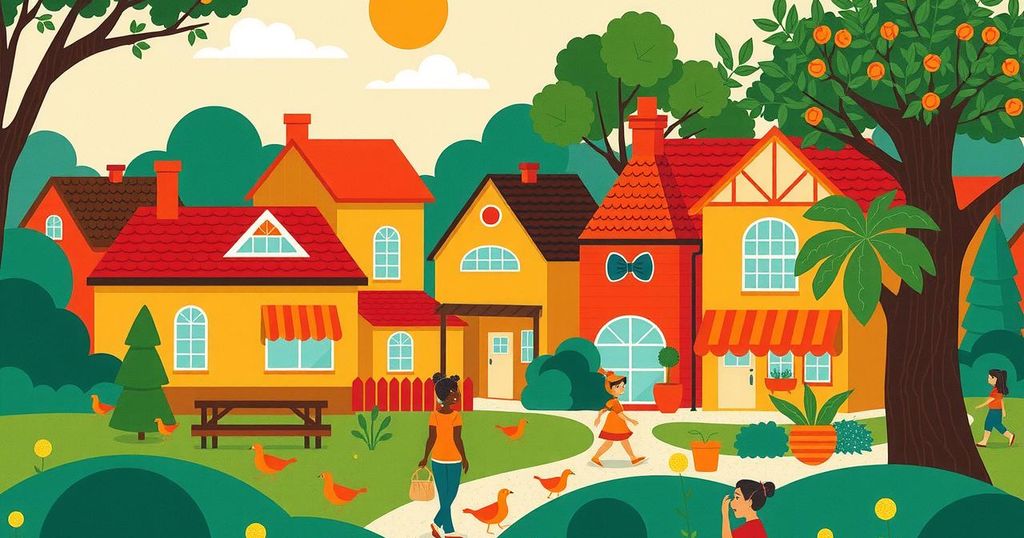This article highlights the efforts of youth and women leaders in South Sudan to promote peace and healing in war-torn communities. Despite the ongoing struggles with violence and instability, figures like Lunia Okuch and Nyawar Monykuany are actively working to foster unity and support economic recovery. Vocational training programs are also contributing to rebuilding lives. The role of local initiatives is crucial in addressing the root causes of conflict.
In South Sudan, youth leaders are playing a pivotal role in fostering peace and healing communities affected by years of conflict. Lunia Okuch, a youth peace ambassador, emphasizes the importance of moving forward, stating, “The past is already the past. We need to open a new chapter.” Her sentiments reflect the resilience of a generation that has faced significant loss yet strives for a hopeful future.
South Sudan has a tumultuous history marked by violence and instability. Since gaining independence from Sudan in 2011, the nation has grappled with civil unrest, highlighted by a civil war that erupted in 2013. Although a revitalized peace agreement was established in 2018, challenges remain, particularly in addressing localized violence, such as cattle raiding and gang issues among the youth.
Akol*, a 22-year-old, represents the struggles faced by many young men in the region. He states, “If I had a job, I would not be in a gang,” reflecting that poverty and lack of support for education contribute significantly to gang involvement. He notes that despite the gangs representing different ethnicities, the shared struggles of poverty unite them.
While gang life is both a byproduct and a contributor to the country’s instability, youth like Lunia Okuch are actively working to overcome differences and foster peaceful coexistence. Simultaneously, women leaders such as Nyawar Monykuany are also stepping forward to bridge community divides, promoting dialogue and understanding among tribes.
Economic recovery is essential for sustainable peace. Joel John, a builder in Yei, credits vocational training programs with enabling him to support his family after displacement. Despite progress, concerns regarding safety and instability in rural areas threaten ongoing development efforts.
The revitalized peace accord of 2018 provided a framework for reconciliation, yet ethnic tensions, land issues, and resource scarcity persist in escalating conflicts. Organizations, including the International Organization for Migration (IOM), support local dialogue initiatives aimed at fostering peace. Ultimately, the evolution of peace in South Sudan largely depends on the unwavering efforts of its people, symbolized by initiatives in Malakal and Yei.
In conclusion, youth and women in South Sudan are leading community rebuilding efforts amid the aftermath of prolonged conflict. They symbolize hope for a transformative future despite ongoing challenges. While local initiatives play a critical role, addressing the fundamental issues that fuel violence will be imperative for establishing lasting peace. The collaboration between various community actors, including NGOs, further underscores the importance of grassroots solutions in South Sudan’s journey toward stability.
Original Source: www.aljazeera.com




